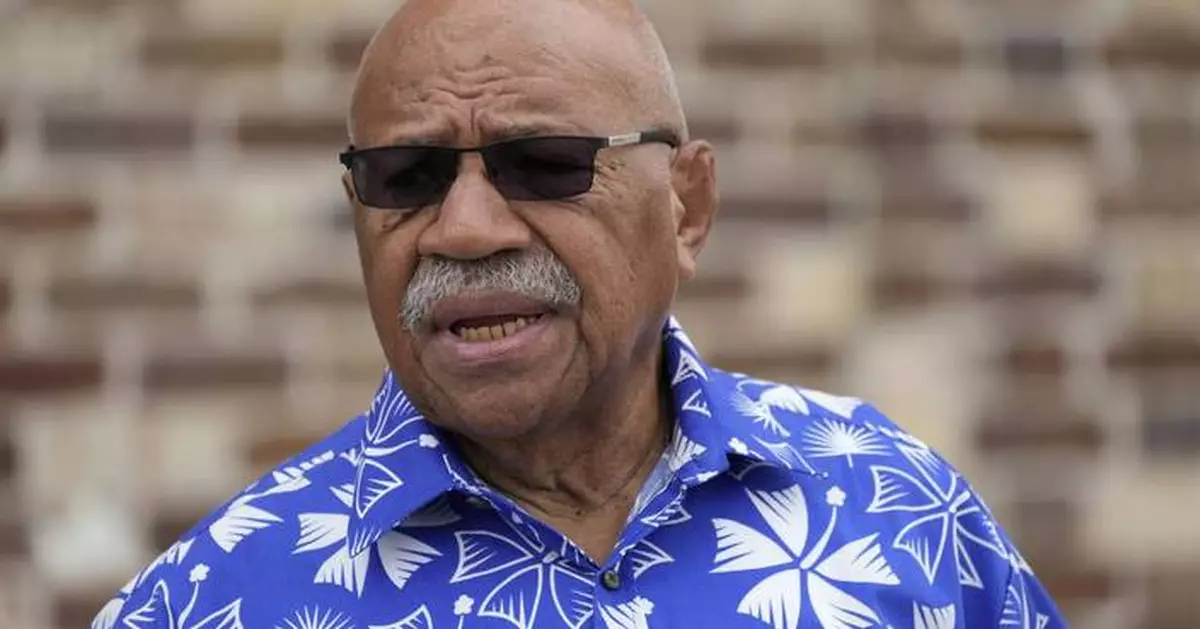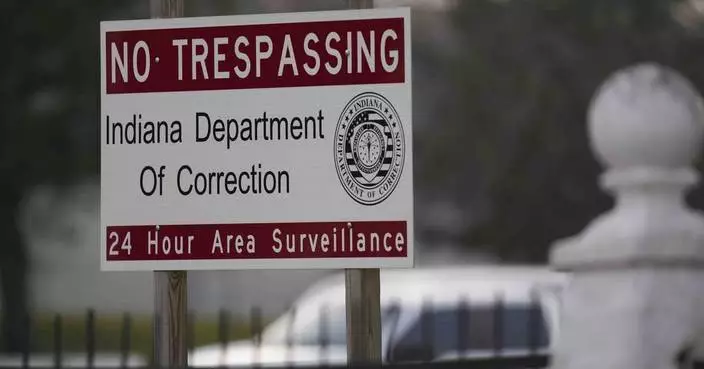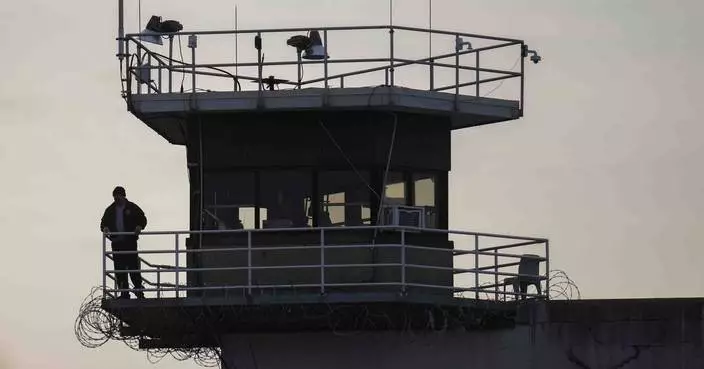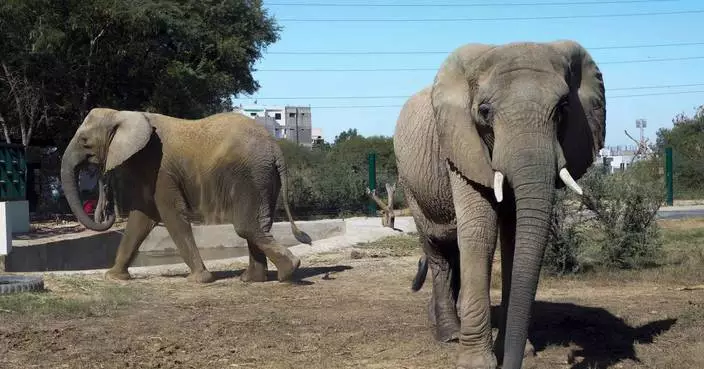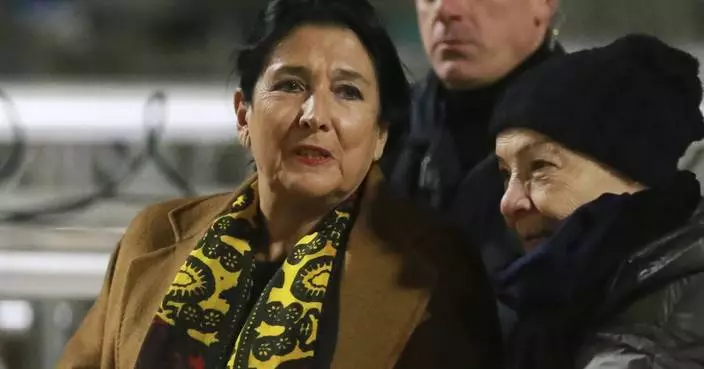MELBOURNE, Australia (AP) — Seven foreign tourists who were hospitalized in Fiji after drinking cocktails at a resort bar were not poisoned by alcohol or illicit drugs, officials said Wednesday following a toxicology report.
The cause of the tourists' illness over the weekend remains under investigation, Fiji’s Tourism Minister Viliame R. Gavoka said.
“I can confirm that no illicit substances or methanol were found in the ingredients or liquor samples,” Gavoka told reporters in the capital, Suva.
“The findings that there is no evidence of alcohol poisoning is great news for Fiji, especially for our vital tourism industry,” he added.
All seven tourists have since fully recovered, he said.
They became ill at the five-star Warwick resort near the town of Sigatoka on Saturday.
The tourists, including Australians and an American, were hospitalized with nausea, vomiting and neurological symptoms, Fiji’s Health Ministry said.
News outlets had reported the cause of the foreigners’ illness was suspected alcohol poisoning, similar to a case in Laos last month in which six tourists — including two Australian teenagers — died after consuming drinks tainted with methanol.
The suspicion of methanol poisoning was a blow to Fiji’s tourism industry, which has a reputation for providing safe food and drinks.
Alcohol poisoning is a common danger in many poorly regulated tourist destinations, where reputable brands of spirits are substituted with locally distilled ethanol. Methanol can be an unintended byproduct of unprofessional distillation.
Fiji Permanent Secretary for Health Jemesa Tudravu said the illnesses could have been caused by a chemical reaction or infection. His department was continuing to investigate.
Gavoka urged foreign governments to remove from their travel advisories warnings a risk of drink spiking in Fiji that emerged this week.
He said the tourist industry had been rocked by media reports of suspected contaminated drinks, but tourists had not canceled their vacations.
“There is no indication of people canceling. What we hear is people who are in a sense of disbelief that Fiji could be spiking drinks or Fiji could be adding some harmful stuff into the cocktails,” Gavoka said.
Fiji Prime Minister Sitiveni Rabuka said the incident had been confined to a single resort.
“We'd like to tell everybody that it's safe to come to Fiji and we have to also find out who has been giving out the negative press about Fiji as a destination. Are they competitors for our tourist visitors?” Rabuka said to reporters.
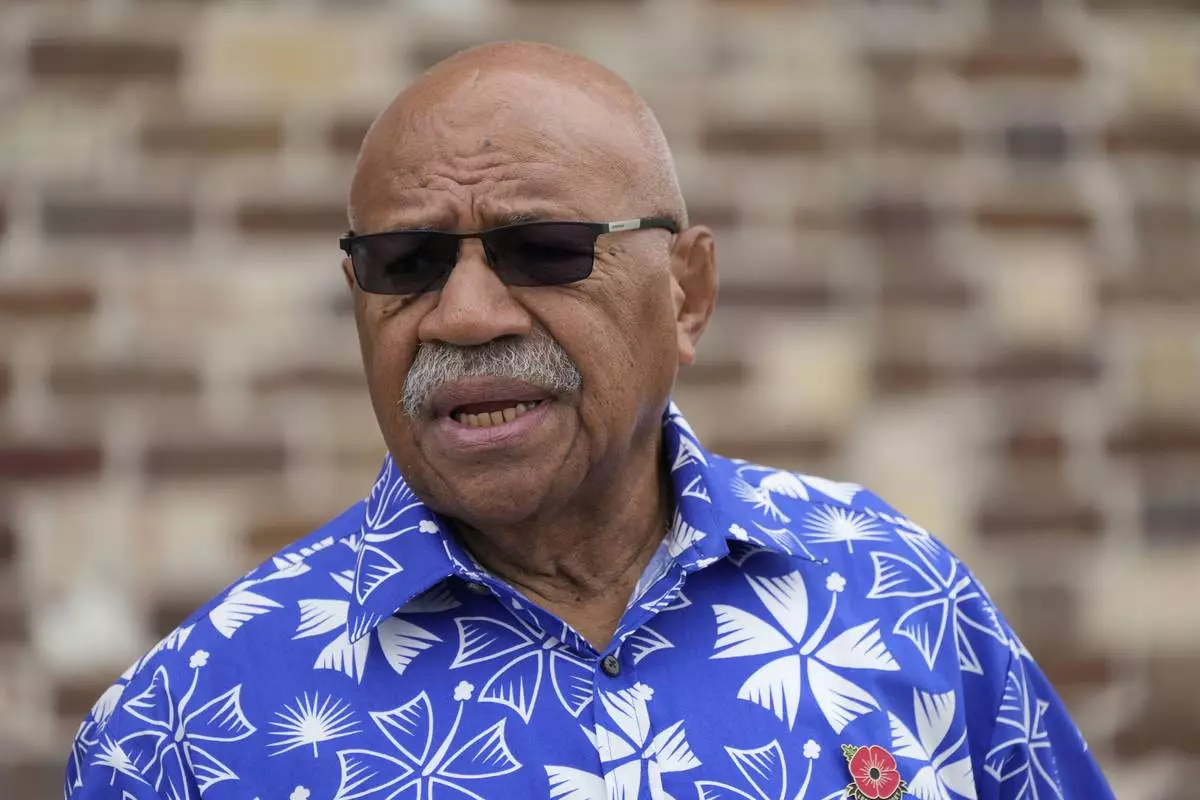
FILE - Fiji's Prime Minister Sitiveni Rabuka visits the New South Wales Rugby Union Centre of Excellence in Sydney, Australia, on Oct. 16, 2023. (AP Photo/Rick Rycroft, File)
Russia's security service said Wednesday that it has detained a suspect in the killing of a senior general in Moscow.
The suspect was described as an Uzbek citizen recruited by Ukrainian intelligence services.
Lt. Gen. Igor Kirillov was killed Tuesday by a bomb hidden in a scooter outside his apartment building in Moscow, a day after Ukraine’s security service leveled criminal charges against him. His assistant also died in the attack. A Ukrainian official said the service carried out the attack.
Russia’s Federal Security Service, or FSB, didn't name the suspect, but said he was born in 1995. According to a statement by the FSB, the suspect said himself that he was recruited by Ukrainian special services. AP can’t confirm the conditions under which the suspect spoke to the security services.
The FSB said the suspect had been promised a reward of $100,000 and permission to move to a European Union country in exchange for killing Kirillov.
The agency stated that acting on instructions from Ukraine, the suspect traveled to Moscow, where he picked up a homemade explosive device. He placed the device on an electric scooter and parked it at the entrance to the residential building where Kirillov lived.
The suspect then rented a car to monitor the location and set up a camera that livestreamed the scene to his handlers in the central Ukrainian city of Dnipro. Once Kirillov was seen leaving the building, the suspect detonated the bomb. The suspect faces a sentence of up to life imprisonment, the FSB said.
The suspect was detained in a village in the Moscow region, according to Ministry of Internal Affairs official Irina Volk, who was quoted by Russian state news agency TASS.
Kirillov, 54, was the chief of the military’s nuclear, biological and chemical protection forces and was under sanctions from several countries, including the U.K. and Canada, for his actions in Russia's full-scale invasion of Ukraine. On Monday, Ukraine’s Security Service, or SBU, opened a criminal investigation against him, accusing him of directing the use of banned chemical weapons.
Russia has denied using any chemical weapons in Ukraine and has accused Kyiv of using toxic agents in combat.
Kirillov, who took his current job in 2017, was one of the most high-profile figures to level those accusations. He held numerous briefings to accuse the Ukrainian military of using toxic agents and planning to launch attacks with radioactive substances — claims that Ukraine and its Western allies rejected as propaganda.
An official with the SBU said Tuesday that the agency was behind the attack. The official, who spoke on condition of anonymity because they were not authorized to release the information, described Kirillov as a “war criminal and an entirely legitimate target.”
The SBU official provided video that they said was of the bombing. It shows two men leaving a building shortly before a blast fills the frame.
Russia’s top state investigative agency said it’s looking into Kirillov’s death as a case of terrorism, and officials in Moscow vowed to punish Ukraine.
The Kremlin said Wednesday that it was “obvious” that Ukraine was behind Kirillov's killing. Spokesperson Dmitry Peskov said that Kyiv “does not shy away from terrorist methods.”
Illia Novikov contributed to this report from Kyiv, Ukraine.
Follow AP’s coverage of the war in Ukraine at https://apnews.com/hub/russia-ukraine
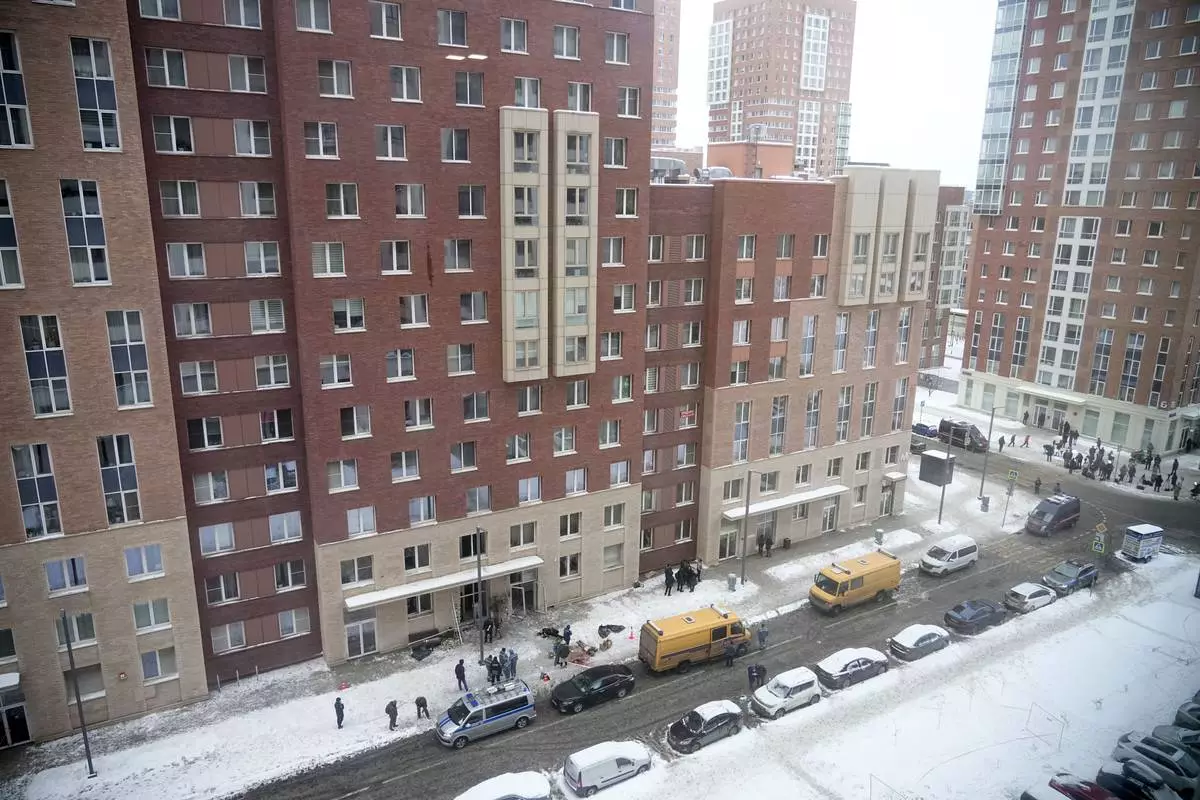
EDS NOTE: GRAPHIC CONTENT - Investigators work at the place where Lt. General Igor Kirillov, the head of Russia's Nuclear, Biological, and Chemical Defence Forces and his assistant Ilya Polikarpov were killed by an explosive device planted close to a residential apartment's block in Moscow, Russia, Tuesday, Dec. 17, 2024. (AP Photo)
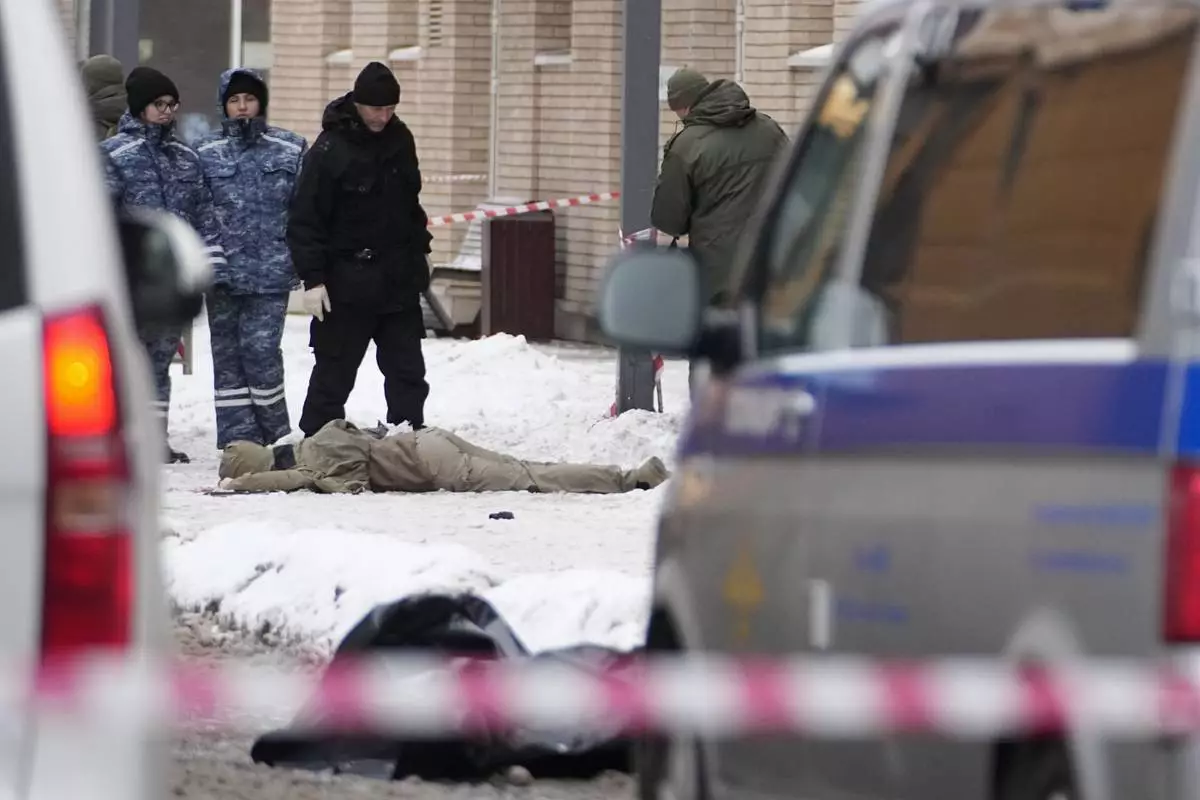
Investigators work at the place where Lt. General Igor Kirillov, the head of Russia's Nuclear, Biological, and Chemical Defence Forces and his assistant, seen at lower center, were killed by an explosive device planted close to a residential apartment's block in Moscow, Russia, Tuesday, Dec. 17, 2024. (AP Photo)
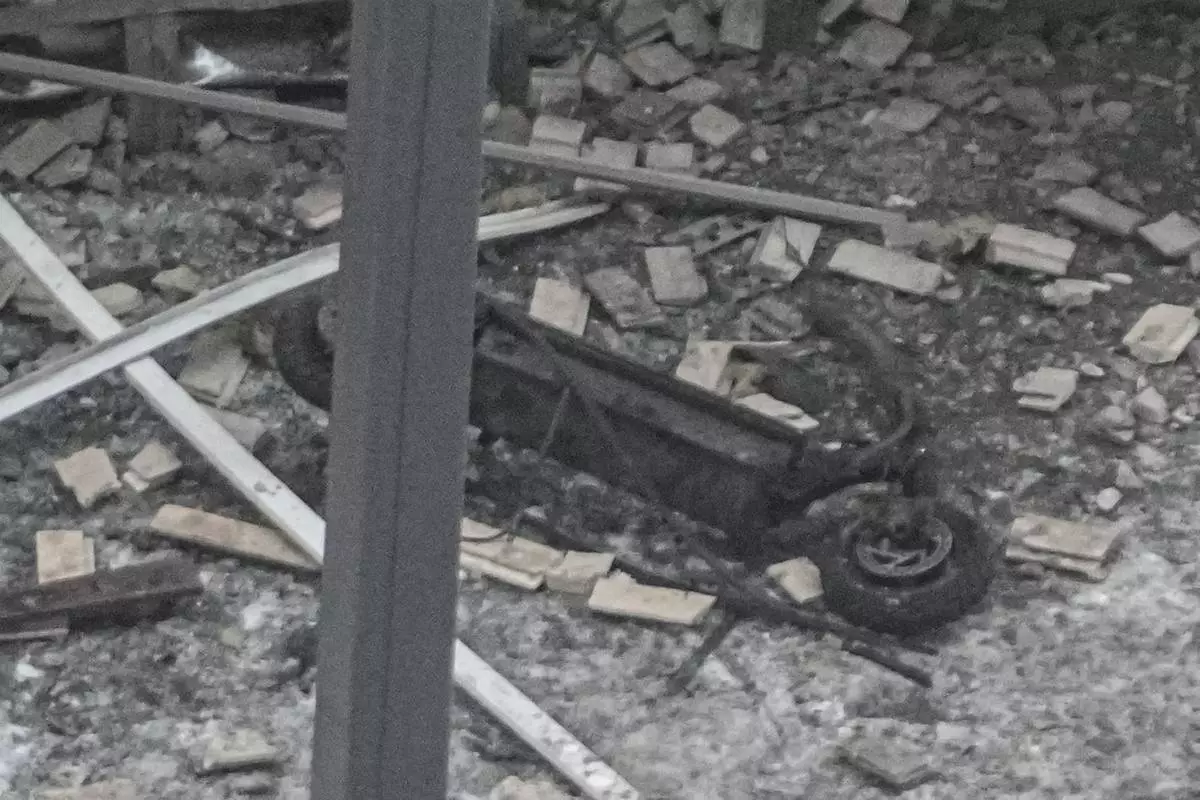
Investigators work near a scooter at the place where Lt. General Igor Kirillov, the head of Russia's Nuclear, Biological, and Chemical Defence Forces and his assistant Ilya Polikarpov were killed by an explosive device planted close to a residential apartment's block in Moscow, Russia, Tuesday, Dec. 17, 2024. (AP Photo)
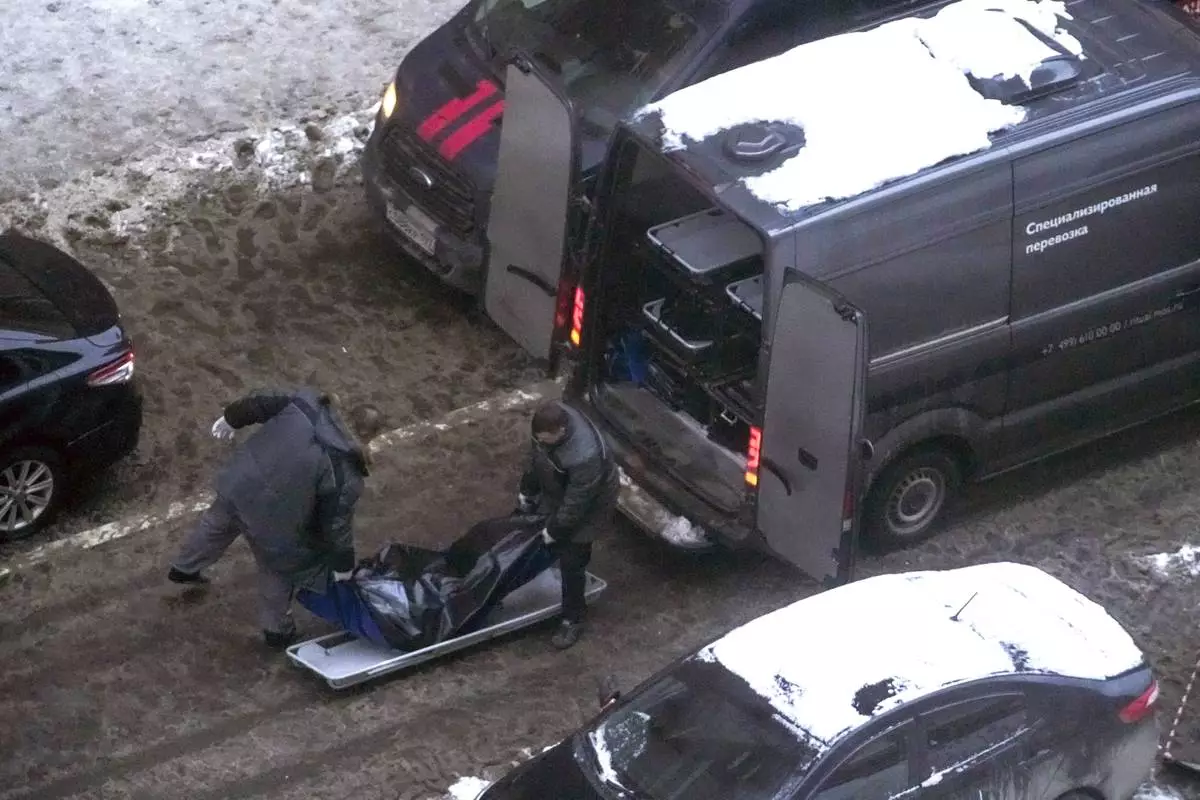
Workers load a body of Lt. General Igor Kirillov, the head of Russia's Nuclear, Biological, and Chemical Defence Forces into a bus after he and his assistant Ilya Polikarpov were killed by an explosive device planted close to a residential apartment's block in Moscow, Russia, Tuesday, Dec. 17, 2024. (AP Photo)
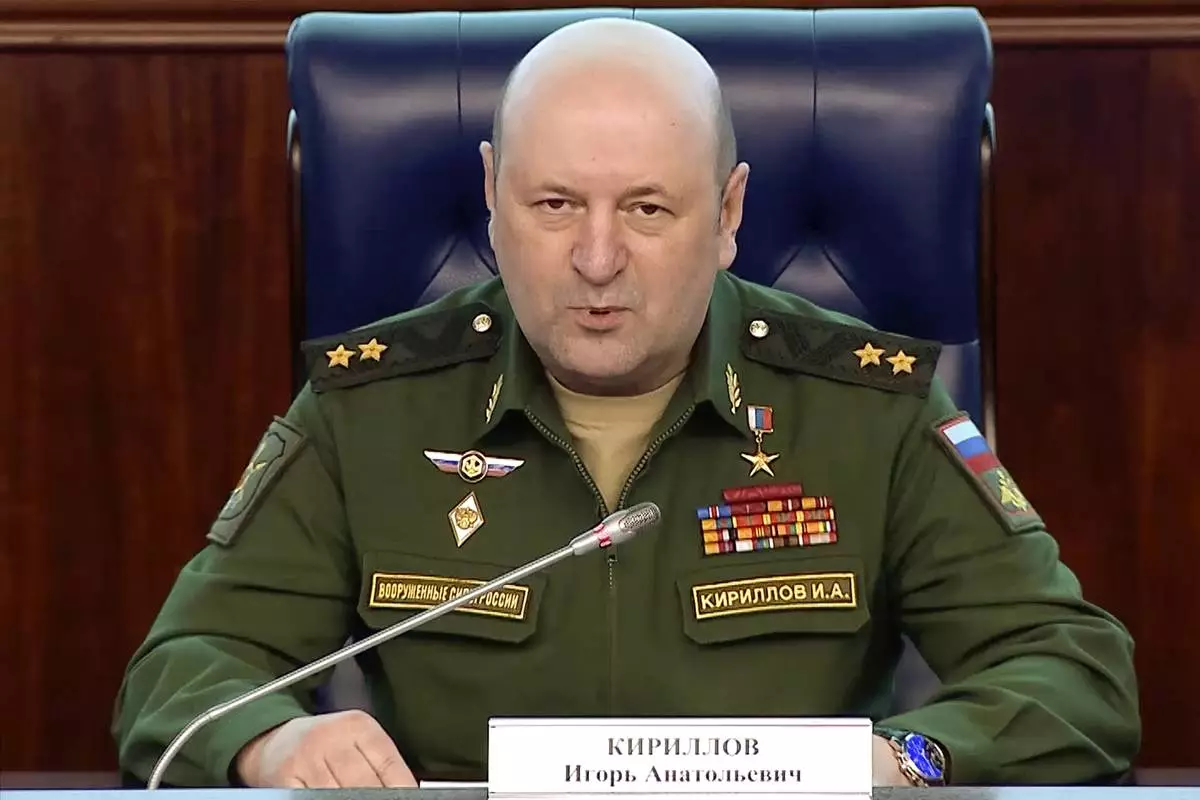
FILE - In this photo taken from video released by Russian Defense Ministry Press Service on Feb. 28, 2023, the head of the radiation, chemical and biological defense troops of the Russian Armed Forces Lt. Gen. Igor Kirillov speaks during a briefing in Moscow, Russia. (Russian Defense Ministry Press Service via AP, File)
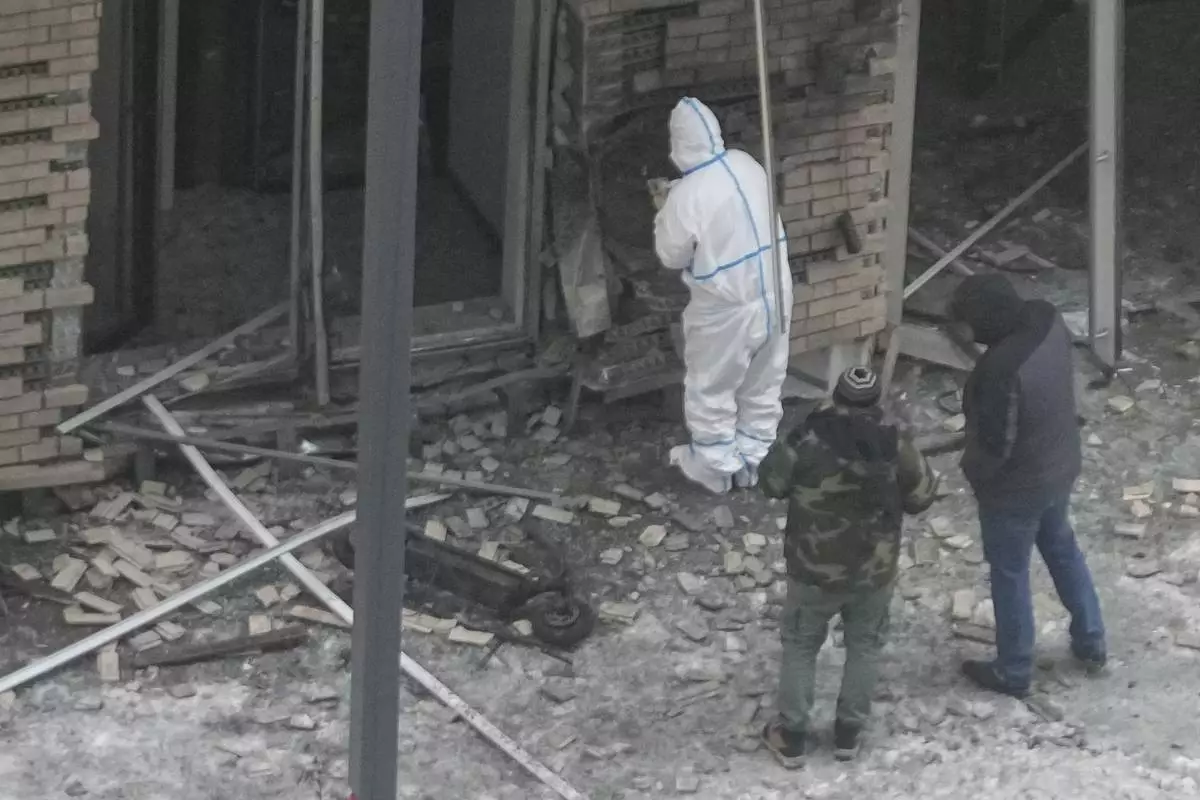
Investigators work near a scooter at the place where Lt. General Igor Kirillov, the head of Russia's Nuclear, Biological, and Chemical Defence Forces and his assistant Ilya Polikarpov were killed by an explosive device planted close to a residential apartment's block in Moscow, Russia, Tuesday, Dec. 17, 2024. (AP Photo)



